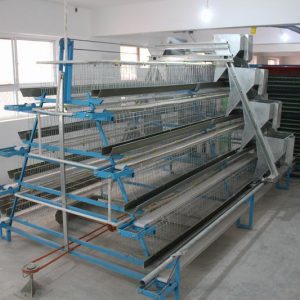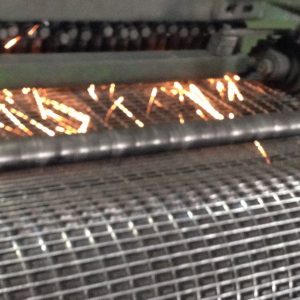
What should I pay attention to when raising chickens in winter?
Winter, especially in the north of China, has a cold climate and is the low season for broiler production. However, if the feeding and management are properly carried out, the chickens can be raised well in winter and a higher economic benefit can be obtained.
How to raise chickens in winter?
(1) Doing good cold and heat preservation work Heat preservation is the key to raising broilers in winter. Do a good house repair before the cold weather comes. Tighten the doors and windows, seal the gaps in the house, and add insulation curtains to the doors and windows to increase the thickness of the bedding properly , According to conditions, heating, infrared, flue, fire wall, stove, etc. are used. Pay attention to the constant temperature, and avoid excessive temperature difference between day and night.
(2) Pay attention to the high density and rapid growth of broiler chicks for ventilation and ventilation in the house. With the increase of body weight, the amount of breathing and excretion will also increase. High, and it will cause air pollution in the house, ammonia concentration is too large. If a stove is installed in the house, the content of harmful gases such as carbon monoxide is increased, which is extremely unfavorable for the growth and development of broilers and even causes poisoning.
(3) Adjust the composition of the diet. The winter temperature is low, and the chicken has a strong metabolism, which can appropriately increase the energy level in the diet. According to the data, increasing the animal and vegetable fats in the broiler diet in winter by 2% to 5% can achieve better weight gain.
(4) Careful management of winter broiler chickens can adopt free feeding and free drinking methods, and increase the number of feedings appropriately. Each chicken should have a slot of 3 to 5 cm, with 23 hours of continuous light daily and 1 hour of darkness. Light intensity is 1 ~ 2W / m2. Due to the high humidity in the house and the relatively dirty air, broilers are susceptible to coccidiosis and respiratory diseases and care should be taken to prevent them.
What should I pay attention to when raising chickens in winter?
1. Keep warm from cold. The winter climate is cold and changeable, which brings many inconveniences to the production of chickens, especially the effect of low temperature on laying hens is very obvious. Under normal circumstances, it is possible to properly increase the feeding density, close the doors and windows, add grass curtains, drink warm water and heat the stove to keep warm and keep the temperature of the chicken house at a minimum of 3 ℃ -5 ℃.
2. Moderate ventilation. Due to the low temperature in winter, the doors and windows of the chicken house are closed tightly, and the amount of ventilation is reduced. However, the exhaust gas from the chicken and the ammonia, carbon dioxide, hydrogen sulfide and other harmful gases produced by the fermentation of chicken manure still exist, which is easy to induce diseases such as respiratory tract of the chicken. Therefore, it is necessary to effectively handle the relationship between ventilation and warmth, and promptly remove the feces and debris in the house. When the weather is good at noon, the windows should be opened for ventilation, so that the air in the house is fresh and the oxygen is sufficient.
3. Reduce moisture. In winter, the ventilation in the chicken house is small, and the amount of water evaporation is reduced. In addition, the hot air in the house will condense into a lot of water droplets when it touches the icy roof and walls, causing excessive humidity in the chicken house, which has created a large number of bacteria and parasites. condition. Therefore, we must strengthen management, pay attention to keeping the house clean and dry, repair the damaged sink in time, avoid overfilling when adding water, and splashing water on the floor in the house is strictly prohibited.
4. Regular disinfection. Disinfection should run through the whole process of raising chickens. Winter temperatures are low, and the frequency of bacterial activity is reduced. But the winter weather is cold and the resistance of chickens generally weakens. If disinfection is neglected, it is easy to cause disease outbreaks.
5. Supplementary light. Winter nights are long and the days are short. Laying hens will cause a drop in egg production due to insufficient light. In order to overcome this natural defect, artificial supplementary lighting can be used to make up. Under normal circumstances, the total time of daily light should not be less than 14 hours, nor more than 17 hours. For example, the natural light during the day is 12 hours, and it is necessary to supplement the light manually for 2-5 hours every day.
Six, increase energy. Chickens obtain heat energy to maintain body temperature by feeding into the body. The lower the outside temperature, the more the heat energy consumed by the chickens to protect against cold. According to measurements, the feed consumption of chickens in winter increased by 10% compared with other seasons. Therefore, sufficient energy must be ensured in winter chicken feed. In addition to ensuring a certain percentage of protein, high-energy feed containing more starch and sugar should be added to meet the physiological and production needs of chickens.
7. Enhance physical fitness. In winter, the resistance of chickens declines. Special attention should be paid to prevention and epidemic prevention and regular vaccination. According to the actual situation, some preventive drugs can also be regularly fed to increase the content of vitamins and trace elements in the feed.



